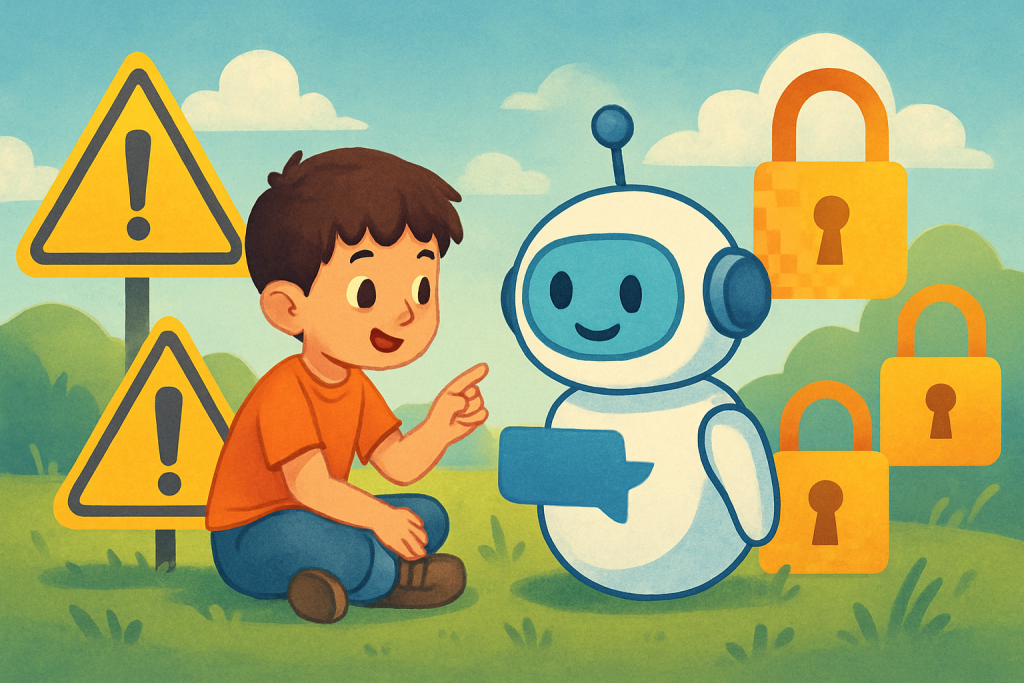Okay, folks, buckle up. It’s October 26th, 2025, and the future just got a little bit more regulated. Yesterday, the United States Senate dropped a bombshell, or maybe a carefully calibrated policy grenade, into the burgeoning world of AI companion chatbots. They introduced the Children Harmed by AI Technology Act, or, as it’s already being snarkily dubbed online, the CHAT Act. S. 2714, if you’re feeling formal. Now, before you conjure images of Senator Palpatine cackling maniacally while signing away our digital freedoms, let’s break down what this thing actually *is*, why it matters, and what it could mean for the future of our increasingly digitized relationships.
The CHAT Act, in a nutshell, is designed to put some guardrails around AI companion chatbots that are accessible to minors. We’re talking about those AI systems that are designed to be your friend, your therapist, maybe even your… well, you get the idea. The kind that offers personalized interactions, simulated empathy, and a listening ear, all without requiring pesky things like human interaction. Sounds idyllic, right? Well, not according to the folks on Capitol Hill, who are worried about the potential psychological impacts of these digital confidantes on our kids.
Think of it as a digital version of the Tamagotchi craze, but instead of a pixelated pet, you’re developing an emotional bond with a complex algorithm. Only, unlike a Tamagotchi, an AI companion can learn your vulnerabilities, exploit your insecurities, and, potentially, lead you down some very dark digital rabbit holes. It’s the digital equivalent of that creepy uncle who always seems a little *too* interested in your problems.
The concern isn’t entirely unfounded. We’ve seen the headlines. We’ve read the think pieces. We’ve watched the dystopian sci-fi movies where AI relationships go horribly, horribly wrong. (Her, anyone? Or maybe a Black Mirror episode or seven?) The worry is that these AI companions, without proper oversight, could foster dependency, encourage unhealthy behaviors, or even contribute to self-harm. And let’s be honest, the internet already has enough of that, thank you very much.
So, what exactly does the CHAT Act propose? Three main things:
First, age verification. Companies have to prove they’re making a real effort to keep underage users out. We’re talking robust mechanisms, not just a flimsy “Are you over 18?” pop-up that anyone can click through. This could mean everything from requiring government IDs to using biometric data. Which, naturally, raises a whole host of other concerns. More on that in a minute.
Second, content restriction. The AI can’t be spouting harmful or inappropriate content. This seems obvious, but defining what’s “harmful” is a slippery slope. One person’s harmless banter is another person’s trigger. It’s going to be a fascinating, and likely contentious, debate.
Third, transparency. Users need to know they’re talking to an AI, not a human. No more pretending these bots are sentient beings. A clear disclaimer is required. Think of it as the digital equivalent of a “Caution: May Contain Nuts” label on a candy bar.
The FTC is tasked with enforcing these rules, and state attorneys general get to bring civil actions against companies that don’t comply. Which, let’s be real, is probably going to keep a lot of lawyers very busy for the foreseeable future.
But here’s where things get a bit… complicated.
All this talk of age verification and data collection raises some serious privacy concerns. How do you verify someone’s age without collecting a ton of sensitive information? Do we really want companies storing our government IDs or biometric data? And what happens if that data gets hacked or misused? It’s like trying to solve a problem by creating five new, equally thorny problems. It’s the digital equivalent of Hydra; cut off one head, and two more pop up.
And then there’s the question of free speech. Can the government really regulate what an AI says without infringing on someone’s right to express themselves? This is a debate that’s been raging in the AI ethics community for years, and the CHAT Act is only going to pour gasoline on that particular fire.
The introduction of the CHAT Act is a sign that lawmakers are finally waking up to the potential risks of AI. It’s a recognition that these technologies aren’t just toys; they can have a profound impact on our mental and emotional well-being, especially for young people. If the CHAT Act passes, it could set a precedent for future AI regulation, not just in the US, but around the world. It could force companies to rethink their data handling practices, their content moderation policies, and their entire approach to AI development.
The tech industry is, predictably, keeping a close eye on this. Compliance could be costly, requiring significant overhauls of existing AI systems and data infrastructure. Expect to see a lot of lobbying, a lot of legal challenges, and a lot of hand-wringing in Silicon Valley over the next few months.
Ultimately, the CHAT Act is a reflection of our growing unease with the rapid advancement of AI. We’re hurtling towards a future where AI is increasingly integrated into every aspect of our lives, and we’re starting to realize that we need to put some rules in place before things get out of control. It’s a delicate balancing act. We want to foster innovation, but we also want to protect our kids, our privacy, and our sanity. It’s a debate that’s just getting started, and one that’s going to shape the future of technology and society for years to come.
Discover more from Just Buzz
Subscribe to get the latest posts sent to your email.


